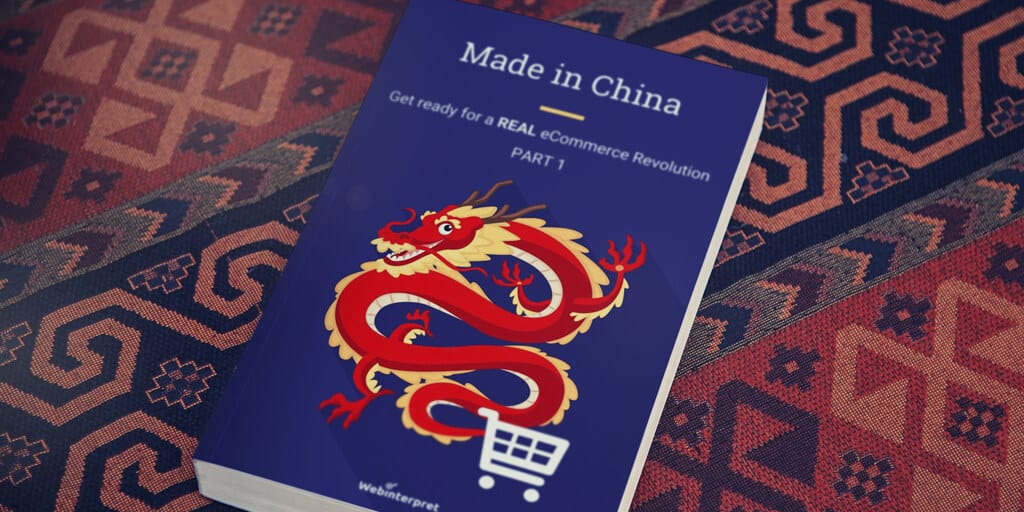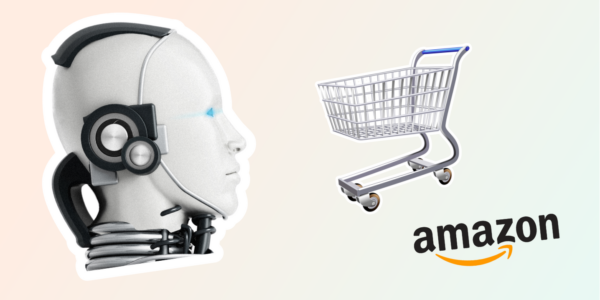
Coronavirus ecommerce checklist for eBay & Amazon sellers
This article is about the impact of coronavirus on ecommerce and how eBay & Amazon sellers can stay relatively immune to the economic shocks of COVID-19. Both eBay and Amazon have addressed the coronavirus topic.
How long will this situation last? Have we been told the whole story? There are many unanswered questions. One thing is certain, though: awareness and preparation can help ecommerce sellers weather the storm.
In this article you’ll learn about:
- The coronavirus impact on economy and ecommerce, especially on eBay & Amazon
- How your ecommerce business can cope with (potential) coronavirus-related adversities
- COVID-19 ecommerce checklist for eBay & Amazon sellers, including useful links.

Coronavirus effects on ecommerce
So far coronavirus has had many implications for (global) ecommerce. Transport routes have been disrupted and many staff employed at warehouses have been unable to work. There have been reports of factory closures, parcel or shipment restrictions and delivery delays.
Coronavirus has affected small and medium sized businesses around the world, but also ecommerce giants, such as China’s top company, Alibaba. Many online sellers, dependent on manufacturers from China, have already felt the coronavirus effects on their supply chains, marketplace rankings and bottom lines. Some ecommerce businesses have experienced stockouts and difficulties in restocking. Consumers, in turn, have been faced with high prices and product shortages.
If your marketplace rankings have suffered, you may have to invest more in digital advertising. According to a report by WARC, global advertising spend will rise 7.1% to $660 billion this year, supported by strong growth of 13.2% in internet investments.
According to James McDonald, WARC Data’s managing editor: “Advertising’s relationship with GDP is strong, but a slowdown in economic output as a result of the virus will not necessarily translate into reduced advertising investment”.
Coronavirus moves demand online
The outbreak of coronavirus is bringing lots of negativity by taking its toll on people and businesses. It’s impossible to turn a blind eye to it. However, giving in to the inconvenience or the perceived hopelessness of the situation is not a solution.
As many customers are stuck at home (or quarantined), they have no other choice but turn to online retail and buy goods online. For example, sales of fresh food on JD.com jumped 215% to almost 15,000 tonnes during the 10-day period to Feb. 2. This is only one example of how ecommerce growth benefits both sellers and consumers.
The chart below illustrates the impact of coronavirus on online sales in Italy, one of the countries most severely affected by coronavirus, between February and March 2020.
With a number of stores closing for periods of time due to people fearing going out on the street, the demand has moved online. According to Biegel: “We could see an acceleration of a shift out of store and into ecommerce”.
At the same time some ecommerce supply chains have been strained by the spread of coronavirus. According to Jon Moeller, the CPG company’s CFO: “While the demand for products is there, the supply of them is limited.”
The outbreak has triggered a bigger demand for certain products. Consumers are trying to protect themselves by stocking up on medical masks, hazmat suits, disinfectants, air cleaning supplies, protective gloves and related products.
Personal hygiene or immune-boosting products seem to be best-sellers on eBay, Amazon and other marketplaces.
eBay, Amazon & coronavirus
eBay and Amazon address the issue of coronavirus to keep sellers and buyers on the safe side, especially in the case of challenges, such as stockouts or counterfeit sellers.
For example, with the global fear surrounding coronavirus, face masks have started to sell out on Amazon. Due to the high demand and profitability, some Amazon sellers have put up listings with misleading information in the absence of stock on legitimate listings.
eBay & coronavirus-related updates
Emphasizing the dedication to delivering a safe and trusted marketplace, eBay has published a reminder of its Listing Policies:
- Titles and item descriptions containing health claims and misusing terms such as “Coronavirus”, “Covid-19”, ‘Virus”, “epidemic” are prohibited.
- Listings that attempt to profit from tragedies and disasters like the coronavirus outbreak are prohibited.
- Sellers who have live listings that offer items such as face masks, hand sanitizer gel, etc., are requested to review their listings to ensure compliance with eBay listing policies.
Not following eBay listing policies could result in:
- Ending/canceling your relevant listings
- Hiding/demoting all listings from search results
- Lowering your seller rating
- Enforcing buying or selling restrictions
- Suspending your account.
To make sure your listings are compliant, eBay recommends you read the three most relevant policies on this topic:
- Prescription and over-the-counter drugs policy
- Disaster and tragedy policy
- Search manipulation policy.
Amazon & coronavirus
Amazon has been advising sellers on managing the coronavirus impact on their businesses. The platform sent a notice advising merchants to cancel previously placed orders that they’re no longer able to fulfill.
Amazon also suggested they put their businesses in “vacation status” to protect their listings from being demoted in search results by its ranking algorithms.
If you run out of product inventory, your ranking in Amazon search results may suffer and you may have to spend a lot on advertising to get back up to where you were.
Coronavirus on Amazon: some facts
- Amazon sold out of medical masks January 21 and hazmat suits February 5
- Hazmat suit sales were up 353%
- 7,000 medical masks sold daily
- Medical mask prices were up 382%
- “Doomsday prep” product searches were up 325%
- Amazon searches for medical masks and respirators were up 17,000%
- Around 7,000 surgical face mask box sets are sold on Amazon every day
- Sellers raising prices for “corona-related” products
- For many of the products, Amazon ran out of their own stock, allowing third-party sellers to take over the listing
- Counterfeit masks and similar products started flooding the market.
How to protect your eBay / Amazon store from the effects of coronavirus?
The coronavirus disruption has taken a big proportion of sellers by surprise. In contrast with big corporations who have dedicated risk management departments and can deal with supply chain disruptions relatively smoothly, many ecommerce sellers are unprepared for global outbreaks of infectious diseases.
However, it’s still worth staying proactive to minimize the impact of coronavirus. Individual ecommerce sellers should take every possible measure to protect themselves against any potential disruption, e.g. by monitoring the situation and managing their own expectations.
The commercial impact of the coronavirus spread could be far-reaching, affecting profits or causing store closures, especially if companies rely heavily on China’s vast consumption power.

Interested in ecommerce in China? Download this FREE comprehensive guide.
Depending on how severe the coronavirus outbreak is for your business, you may consider revising your 2020 budget, targets and adjusting your forecasts. There’s no point in pursuing targets that have become impossible to achieve. This can result in a waste of resources as well as dwindling commitment of your team.
Below is a summary of what you should consider to stay on the safe side.
Keep your supply chain in check
Coronavirus has an impact on supply chains across industries. As a result, suppliers may have to prioritize orders from their larger clients. This means that eBay and Amazon sellers might be at the end of the line and should expect longer lead times.
Monitoring the situation through reliable news sources and directly through your suppliers is essential. Stay updated on the regulations (nationally and locally), but also track your goods/orders and shipments.
Make sure to strengthen relationships with your suppliers. It’ll help you keep the information flowing. In the face of unexpected surprises, encourage an honest discussion with your sources and being upfront with you about their limitations.
It’s also worth diversifying your supply base and looking for additional suppliers, especially if China has been your main source. Consider sourcing from other countries, such as India, Vietnam, Turkey, US, Australia or Mexico.
When looking for non-Chinese suppliers, bear in mind that alternative sourcing markets may not be able to produce all product categories like China does. However, in certain categories these countries may be competitive so you can try to source these categories for your business in the long term. For example, India specializes in home products, gifts, eco-friendly products, cotton-based textiles & fabrics, apparel, leather and so on.
Secure your inventory
Shipment delays are part and parcel of outbreaks such as coronavirus. Hence, take extra care to plan your orders and ask your suppliers to release them early. To stay on the safe side, consider buying a bigger quantity than usual.
If you forecast you may run out of inventory, adjust your promotions and pricing to slow down your sales. At the same time think about how you can maximize your profit on the current inventory (in an ethical way).
Pay more attention to quality control
If you work with Chinese suppliers, some workers may not return to the factory due to the disease. That means your supplier may be working with a backlog in production due to fewer staff. As a result, to cope with those circumstances, some suppliers may cut corners on quality. Thus, it’s essential that you keep your quality control in check.
Prepare your customer support team for coronavirus-related FAQs
These days your customers are being bombarded with plenty of pessimistic updates. Thus, they may have lots of questions and concerns, from shipment delays through your factory’s location to the safety of opening the parcel. Make sure your customer support is prepared to handle them effectively, especially if your client base is international.
Try to stay one step ahead by knowing how to respond but also by offering soothing messages. Give your customer the feeling that you have things under control and do your best to stay on top of the situation.
Your coronavirus-ecommerce checklist
Creating a coronavirus checklist will help you identify and prepare for the different scenarios. Identifying the risks and asking the right questions is essential.
- What’s the (potential) impact of coronavirus on your business?
- What are the risks and how can you minimize them?
- What can you do now and what in the future?
- Are you prepared for several scenarios?
- What can you do when worst-case scenarios become reality? What are the consequences?
- What are the costs? How will you cover them?
- What/who will be impacted: your suppliers, customers, staff or any other aspect of your business?
- Are you dependent on a limited number of suppliers? Are they from China?
- Is it desirable and realistic to start manufacturing in other countries?
- Can you find alternative suppliers? How long will it take? What’s the price difference and what does it mean for your budget (planning)?
- Do you have backup sources of inventory? Does it make sense for you to order more in advance?
- What and how will you communicate with your customers?
- Are you expecting the buying behavior of your customers to change? Can non-Chinese products be easily swapped?
- Can you predict demand fluctuations in your product categories, especially if it’s health or travel?
- Have you updated your sales, inventory and cash flow forecast?
- How can the changing coronavirus circumstances affect your employees? What can you do to address their situation?
- Is it recommended for you to revise your vacation policy? Have you given enough consideration to your employees so they won’t lose vacation time or their jobs if they stay home sick?
- Are most of your sales coming from one or two products? If so, can you expand your options?
- Are most of your sales coming from one or two countries? If so, can you expand your options?
Coronavirus havoc shall pass: keep calm & carry on
The spread of coronavirus requires taking targeted action to address the gravity of the situation. At the same time it isn’t the first disruption of this kind that has hit retailers and their customers.
The bottom line: keep calm & carry on.
In other words, prepare for the different scenarios, stay on top of recent updates and make the best of the situation. Remember that your competitors are going through the same: you may use this fact for empathy but also to stay alert to unexpected opportunities.
At a less predictable time like this an effective solution can be selling in multiple markets. In other words, it’s better not to put all your eggs in one basket. According to Mike Bishop, CEO at Webinterpret:

For instance, if you lose your revenue in one market at any point, for any reason, you can research the situation in other countries to put in more effort in regions that can offer you the best possible ROI. At volatile times having this possibility can help you save your business.
Stay safe & healthy!
Coronavirus in numbers (as of 21 May, 2020):
- Coronavirus cases: 5,092,034
- Deaths: 329,768
- Recovered: 2,026,178
- Currently infected patients: 2,736,088
- Countries affected: 213 (mainly USA).

Have your rankings on marketplaces been affected? Learn how to use Amazon Advertising to your advantage!
Sources
- How coronavirus could impact marketing, from e-commerce to the Olympics
- Coronavirus outbreak: how to manage the impact of your ecommerce business
- What the Wuhan Virus Means for Importers of China Products
- As coronavirus outbreak grinds on, e-commerce operations buckle under increased pressure
- Coronavirus Impacts eCommerce, Business Travel
- As importers brace for coronavirus impact, should shoppers question the safety of Chinese parcels?
- eBay: COVID-19 (Coronavirus) - Important reminder about our listing policies
- Amazon sellers struggle to keep products in stock amid coronavirus outbreak
- How Coronavirus Can Affect Your eCommerce Business
- Coronavirus stats
- The Coronavirus on Amazon
Related Posts:
Ecommerce Newsletter
By clicking the “Subscribe now” button, you agree to receive our monthly e-mail newsletter and regular marketing and commercial communications by email from Webinterpret regarding marketing trends and our digital marketing services. You confirm that you have read and agreed to Webinterpret’s Terms of Service and Privacy Policy.

![[Webinar recording] WI Talks: EPR made easy epr-webinar](https://www.webinterpret.com/wp-content/uploads/2024/02/epr-webinar-600x300.png)

